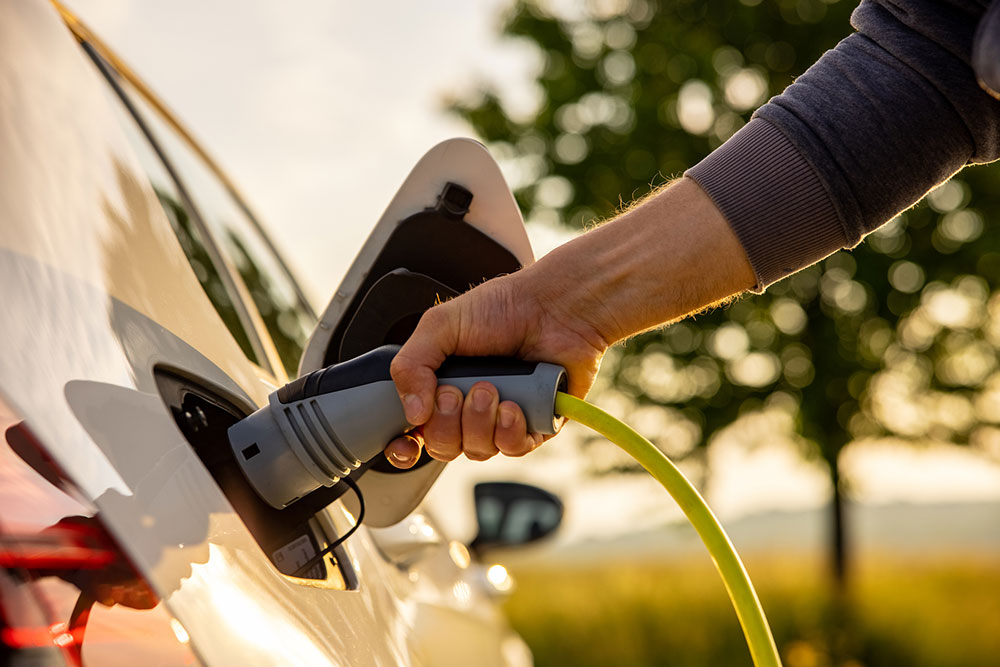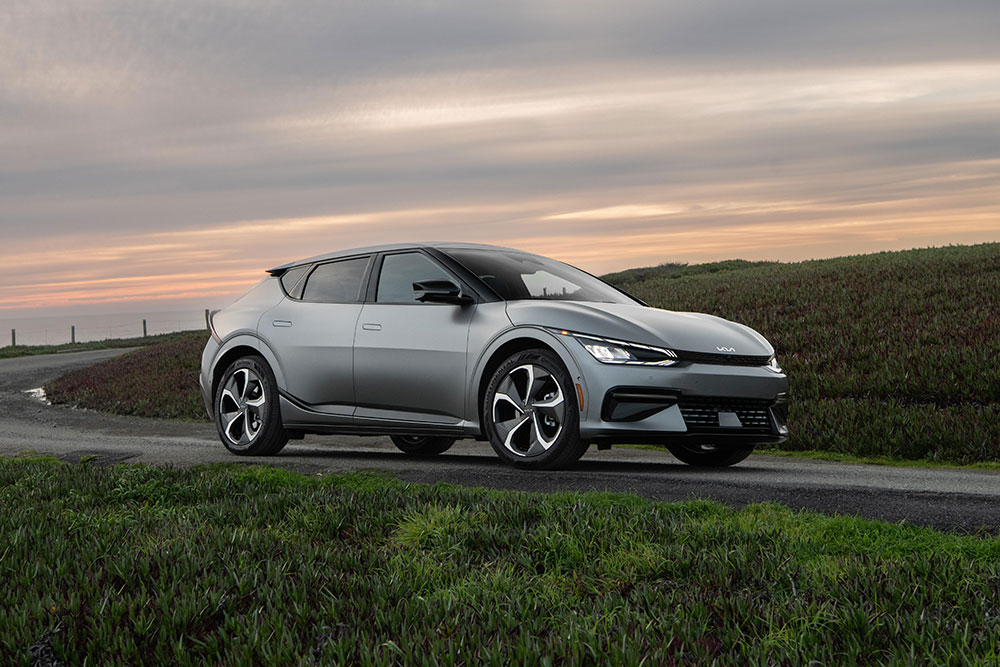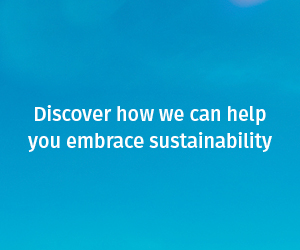EV boom predicted for Australia
Kia Australia boss and the head of the Electric Vehicle Council say EVs will soon dominate new vehicle sales.

“It’s not a matter of if, it’s a matter of when EVs (electric vehicles) will dominate the landscape,” says Kia Australia Chief Operating Officer Damien Meredith.
Speaking at the launch of the brand’s all-new battery electric (BEV) SUV, the Kia EV6 (pictured below), Mr Meredith predicted “big changes” for the automotive industry in Australia over the next three to five years, including a rapid ramp up in the availability of different EV models and growing consumer acceptance of the new technology.
“The reality is that (the shift to EVs) happened far quicker than everyone thought, and I think that probably by the end of this decade we’ll be pretty close to 50% (market share).”
The Kia CEO said he expected more EV manufacturers to launch into the Australian market in the next few years, primarily from Asia, thanks to legislative changes “and the corporate decisions being made globally by the manufacturers” to switch more production to EVs.
“It’s happening and it’s happening quick,” Mr Meredith said of the EV transition.
He called for a more uniform approach to EV policy, including the current situation where some states and territories provide EV rebates and other financial incentives, while others don’t.
“I think federalism is a little bit out of hand at the moment,” he said.
He added the EV shift provided an opportunity for governments, “to revaluate everything with regards taxation” and that he would prefer the money paid in EV rebates and incentives be put towards infrastructure.
His comments came ahead of the release of a report by the Electric Vehicle Council (EVC) which showed that sales of plug-in electric vehicles nearly tripled in the past year from 6,900 in 2020 to 20,665 in 2021.
EVs now account for 1.95% market share of new vehicles, up from 0.78% in 2020, according to the EVC.
The EVC figures include sales of Tesla EVs, which are not captured by the FCAI, the peak body for Australia’s automotive industry.
The FCAI released its own 2021 sales figures in early January indicating that sales of battery electric vehicles totalled 5,149 in 2021, an increase of 191.1% on 2020 figures.
An additional 3,372 plug-in hybrid electric vehicles (PHEV) were sold according to the FCAI, along with 38 hydrogen fuel cell vehicles.
Tesla dominates EV sales in Australia but has refused to share its sales figures with the FCAI, meaning the release of the EVC report paints a fuller picture of the take up of EVs in this country.

The EVC said the release of its 2021 sales data showed Australia was “at the precipice of an EV economic boom”, and called on the Federal Government to follow the leads of the states and territories that have introduced EV incentives.
EVC Chief Executive Behyad Jafari said the boost in sales was being driven by positive policy change at a state level and that momentum could now be built upon.
"The penny has now well and truly dropped on how good electric vehicles are,” Mr Jafari said.
“Most people in the car market will now be considering an electric option. The role of government is to help them make the jump.
"Governments that take the path of encouragement will capture myriad societal benefits – cleaner air, reduced respiratory illness, smaller carbon footprint, quieter roads.
“Those that lag will make themselves a dumping ground for old-tech, dirty vehicles.
"It's great that some state governments have received the global message, but at a national level we're stuck in the past.
“We desperately need the Federal Government to introduce Australian EV rebates alongside fuel efficiency standards, just like other developed nations. If we get these changes, you'll see sales figures really rocket ahead.”
Mr Jafari also joined other industry commentators who have called for a restarting of a local automotive manufacturing industry, focused on EVs.
"As a wealthy, car-loving, early-adopting nation, Australia should be an electric vehicle leader,” he said.
“If we were, we could restart a thriving manufacturing industry supporting thousands of quality jobs. But we need to build rapidly on this current momentum.”
The EVC figures showed the Tesla Model 3 was easily Australia’s most popular EV, with total sales of 12,094 being almost nine times higher than the second-placed MG ZS EV.
Top 10 BEV and PHEV models
| 1 | Tesla Model 3 | 12,094 |
| 2 | MG ZS | 1,388 |
| 3 | Mitsubishi Outlander | 592 |
| 4 | MG HS | 580 |
| 5 | Porsche Taycan | 531 |
| 6 | Hyundai Kona | 505 |
| 7 | Volvo XC40 | 495 |
| 8 | Hyundai Ioniq | 407 |
| 9 | Nissan Leaf | 367 |
| 10 | Mercedes-Benz EQA | 367 |
RACQ offers Roadside Assistance for electic vehicles
Related topics
Things to note
The information in this article has been prepared for general information purposes only and is not intended as legal advice or specific advice to any particular person. Any advice contained in the document is general advice, not intended as legal advice or professional advice and does not take into account any person’s particular circumstances. Before acting on anything based on this advice you should consider its appropriateness to you, having regard to your objectives and needs.
Insurance Products (excluding Travel Insurance) are issued by RACQ Insurance Limited ABN 50 009 704 152 (RACQI) and arranged by its agent, RACQ Distribution Services Pty Ltd (RDS) ABN 35 116 361 650, AFSL 567130 and RDS' authorised representatives (including RACQ Operations Pty Ltd ABN 80 009 663 414, AR No. 234978 (RACQO). Conditions, limits and exclusions apply. RDS and RACQO are in the RACQ group of companies. One of the companies in the RACQ group of companies has a minority shareholding in RACQI.
RDS and RACQO have not taken your personal objectives, circumstances or needs into account when preparing advice regarding insurance products and you will need to consider whether the advice is appropriate for you. Read the Product Disclosure Statement (PDS) and any applicable Supplementary PDS before making a purchase decision on this product. You can also access our Target Market Determinations on this website. RDS receives a commission from RACQI for the policies it arranges. RACQO receives fees paid for services it provides to RDS. Further details about remuneration are available on request prior to purchasing.
Banking and loan products issued by Members Banking Group Limited ABN 83 087 651 054 AFSL/Australian credit licence 241195 trading as RACQ Bank. Terms, conditions, fees, charges and lending policies apply. This is general advice only and may not be right for you. This information does not take your personal objectives, circumstances or needs into account. Read the disclosure documents for your selected product or service, including the Financial Services Guide and the Terms and Conditions, and consider if appropriate for you before deciding.
Except for RACQ Bank, any RACQ entity referred to on this page is not an authorised deposit-taking institution for the purposes of the Banking Act 1959 (Cth). That entity’s obligations do not represent deposits or other liabilities of RACQ Bank. RACQ Bank does not guarantee or otherwise provide assurance in respect of the obligations of that entity, unless noted otherwise.
RACQ Bank subscribes to the Customer Owned Banking Code of Practice which establishes higher standards than the law requires. The Code reflects modern consumer expectations and developments in approaches to issues such as consumer vulnerability, guarantors, and supporting customers through financial hardship. Please read our Customer Owned Banking Code of Practice page for more information.
RACQ Operations Pty Ltd (ABN 80 009 663 414 AR 000234978) and Members Travel Group Pty Ltd (ABN 45 144 538 803 AR 000432492) are acting as an Authorised Representative of the issuer of the insurance, Tokio Marine & Nichido Fire Insurance Co., Ltd. (ABN 80 000 438 291 AFSL 246 548). Any advice set out above is general in nature only, and does not take into account your objectives, financial situation or needs. Before purchasing any travel products, please consider the RACQ Travel Insurance Product Disclosure Statement (PDS) and the Target Market Determinations (TMDs) that apply to these products. Whilst the PDS outlines the Terms and Conditions of these products, the TMDs outline the intended class of customers that comprise the target market for these travel products. This will allow you to consider which products best suit your objectives, financial situation and needs and consider the products appropriateness to your personal circumstances. TMDs also outline matters involving the distribution and the review of these products. The PDS, Supplementary PDS and TMDs for each travel product can be found here.

